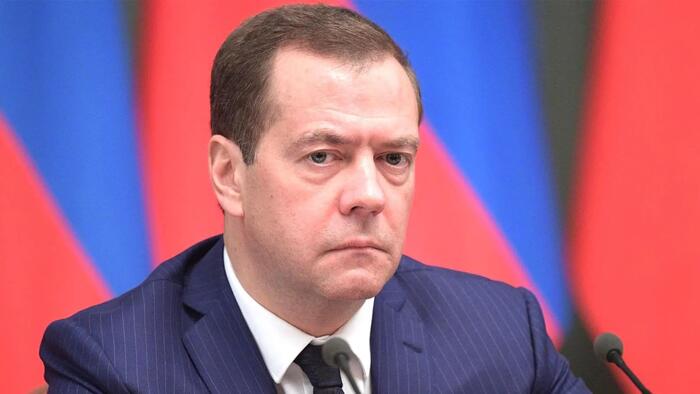In the wake of a major nuclear readiness drill conducted by Russia, Dmitry Medvedev, the former president and current deputy chairman of Russia’s Security Council, expressed his views on the implications of the upcoming U.S. presidential election on Russia. Medvedev conveyed his belief that it matters little who wins, as both frontrunners reportedly share a consensus that “Russia must be defeated.” His comments were made in a post on Telegram, where he has a significant following. Presenting both candidates as antagonistic towards Russia, he suggested that neither Donald Trump nor Kamala Harris would fundamentally alter the current geopolitical landscape or cease military operations against Russia.
Medvedev highlighted what he perceives as Harris’s shortcomings, labeling her as unwise and controllable, whereas he described Trump as “low-energy” and predictable, arguing that he would conform to the existing political and military dynamics, hence not bringing any swift resolutions to the conflict in Ukraine. He projected a grim scenario for Trump, suggesting that if the former president attempted to make substantial changes or intervene directly, it could result in severe personal consequences, even evoking the specter of an assassination comparable to that of JFK. This rhetoric underscores Medvedev’s belief that internal and external forces would constrain Trump’s ability to act.
Furthermore, Medvedev expressed skepticism about U.S. foreign policy and its fiscal motivations, emphasizing a potential endless flow of American military aid to power various conflicts abroad, specifically citing Ukraine. His phrase “the Banderite scum” directed at Ukrainian factions highlights the derogatory language used by Russian officials to discredit Ukraine’s government and military efforts. He dramatically suggested that the conflict should be escalated rather than diminished, instructing that the best outcome would be to continue aggressive actions towards Ukraine post-election.
Delving into potential escalations, Medvedev reiterated concerns regarding NATO’s eastward expansion, particularly through Ukraine’s aspirations to join the alliance. He referred to Henry Kissinger’s observations before his death, suggesting that advocating for Ukraine’s NATO membership might lead inevitably toward a third world war. This reflects the often-cited justification of Russia’s military engagements: the perceived threat from NATO’s proximity. Medvedev underscored the Russian stance that any moves to incorporate Ukraine into NATO could exacerbate tensions and provoke significant conflict.
Moreover, Medvedev criticized the contemporary U.S. and European leadership, contrasting them unfavorably with Kissinger’s diplomatic foresight. He cautioned Western powers against underestimating Russia’s nuclear capabilities, implying that should they perceive any serious attempt to defeat Russia in Ukraine, it could result in dire consequences. This warning was framed within the context of an ongoing war but compounded by implications about the existential threat Russia feels from expanding Western alliances.
In summary, Medvedev’s commentary reflects a broader narrative within Russian state rhetoric that aims to portray itself as a victim of external aggression while simultaneously threatening severe repercussions for continued Western support of Ukraine. He articulates a deterministic view of U.S. politics as one that inevitably leads to conflict rather than resolution, framing military and economic actions in terms of survival. This perspective emphasizes the potential for increased tensions and highlights the role of U.S. domestic politics in influencing international relations, particularly regarding the contentious Russia-Ukraine situation and NATO’s influence in Eastern Europe.

